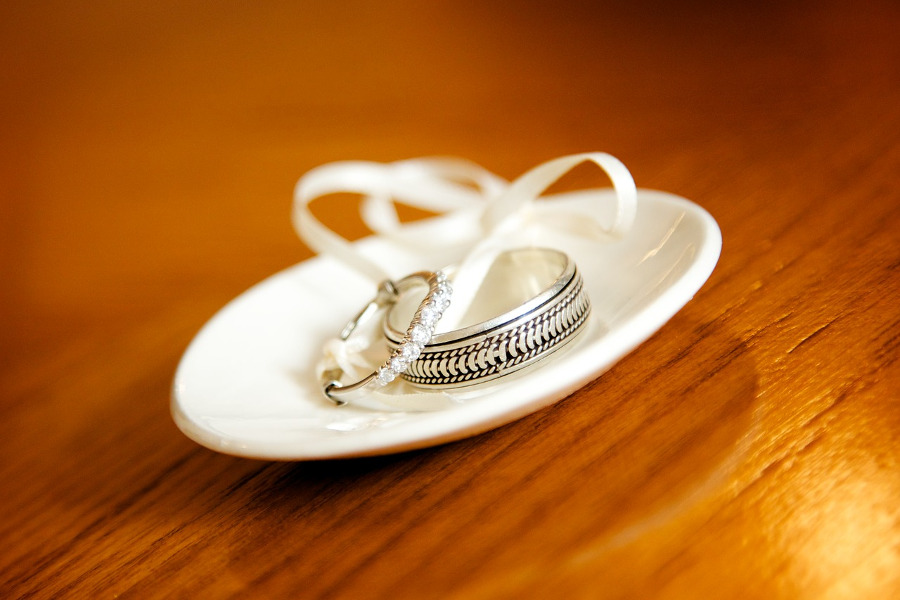

By: Abu Aaliyah Sharif
Source: The Humble “I”
1. Marriage (nikah), the shared life of man and woman, is commended in Islam as being honourable and good. It was the way of God’s prophets and messengers, with the notable exception of Jesus Christ, peace be upon him. The Qur’an says: وَلَقَدْ أَرْسَلْنَا رُسُلاً مِنْ قَبْلِكَ وَجَعَلْنَا لَهُمْ أَزْوَاجًا وَذُرِّيَّةً – We sent Messengers before you, and appointed for them wives and children. [13:38]
2. The Qur’an describes marriage as: مِيثَاقًا غَلِيظًا – a solemn covenant [4:21] Given the sacred and solemn nature of marriage, it mustn’t be entered into hastily or unadvisedly, but rather, honourably, reverently and soberly; and with trust in God.
3. The causes for marriage must be contemplated upon before embarking on this quest of intimacy. In Islam’s legal literature, we find the causes for which marriage was ordained are said to be: [i] That the natural instincts of love and intimacy implanted by God can be given blessed expression. [ii] For the increase of humankind and for children to be raised in God’s remembrance and in reverant thanks of Him. [iii] For the benefit of society at large: for family is the foundation of a just and caring society; it is the realm where love, duty, commitment and sacrifice are first encountered and learnt.
To state the above in the more clinical language of today’s anthropologists, the function of marriage is to ensure: [i] social reproduction, [ii] socializing of children and [iii] the passing on of social capital.
4. Speaking about the greater goal of marriage, it’s actual spirit, the Qur’an says: وَمِنْ آيَاتِهِ أَنْ خَلَقَ لَكُمْ مِنْ أَنفُسِكُمْ أَزْوَاجًا لِتَسْكُنُوا إِلَيْهَا وَجَعَلَ بَيْنَكُمْ مَوَدَّةً وَرَحْمَةً إِنَّ فِي ذَلِكَ لآياتٍ لِقَوْمٍ يَتَفَكَّرُونَ – And of His signs is that He created for you wives from yourselves that you might find tranquility in them, and He set between you love and affection. In this are signs for people who reflect. [30:21] Thus, let spouses seek to be loving companions on a sacred journey.
5. The Qur’an wants marriage life to be a life of mutual kindness and companionship. It says, while primarily addressing men: وَعَاشِرُوهُنَّ بِالْمَعْرُوفِ – Live with them in kindness. [4:19] And it insists: وَآتُوهُنَّ أُجُورَهُنَّ بِالْمَعْرُوفِ – Give them their dowry in kindness. [4:25] And if it be the case: فَإمْسَاكٌ بِمَعْرُوفٍ أَوْ تَسْرِيحٌ بِإِحْسَانٍ – Keep them honourably, or release them in kindness. [2:229] Allah also warns men: أَسْكِنُوهُنَّ مِنْ حَيْثُ سَكَنتُمْ مِنْ وُجْدِكُمْ وَلاَ تُضَارُّوهُنَّ لِتُضَيِّقُوا عَلَيْهِنَّ – House them in your own homes, according to your means. And do not harass them, so as to make life intolerable for them. [65:6]
So the affair, whether marriage or divorce, is to be one of kindness. The mark of a real Muslim man is nothing less; all else just isn’t manliness in any real sense of the word.
6. As for a Muslim women’s role in nurturing marital harmony, Allah says: فَالصَّالِحَاتُ قَانِتَاتٌ حَافِظَاتٌ لِلْغَيْبِ بِمَا حَفِظَ اللَّه – So virtuous women are humbly obedient, guarding in absence what Allah would have them guard. [4:34]
7. The Qur’an depicts how it wishes spouses to be with each other, using this beautiful and intimate imagery: هُنَّ لِبَاسٌ لَكُمْ وَأَنْتُمْ لِبَاسٌ لَهُنَّ – They are a garment for you and you are a garment for them. [2:187]
To conclude: The entire issue of marriage in Islam revolves around mutual love, compassion, kindness, understanding and companionship. Whenever spouses enter the marital home, let them each hang their egos up on the coat peg. For marital becomes martial when the “i” is pushed foreword!
Wa’Llahu wali al-tawfiq.



